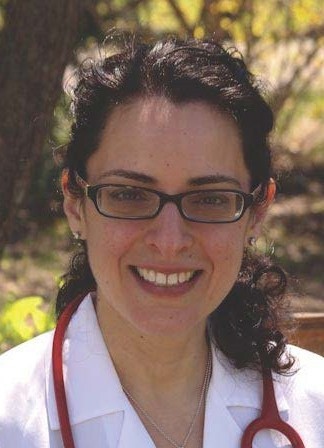Harvard Health Blog
Intensive lifestyle change: It works, and it's more than diet and exercise

What if I could prescribe a pill that could prevent or treat high blood pressure, diabetes, high cholesterol, heart disease, even depression and dementia? And what if researchers had extensively researched this pill and the result was: ample proof that it's effective. On top of that, it's practically free and has no bad side effects. As a matter of fact, its only side effects are improved sleep, increased energy, and weight loss.
Actually, folks, this powerful medicine exists. It's real and readily available for everyone. It's called intensive lifestyle change. Its active ingredients are physical activity and drastic improvements in diet, and it works well. Amazingly well. If it were an actual pill, no doubt millions of people would be clamoring for it and some pharmaceutical company would reap massive profits. But here's how you can get "it." Intensive lifestyle changes involves knowledge and action — which many doctors think is just too difficult to teach, and many patients think is too difficult to do.
But they would be wrong
I'm here to report that intensive lifestyle change is doable, sensible, and essential for good health. Physician and researcher Dr. Dean Ornish is a pioneer of intensive lifestyle change. (You can listen to his TED talks here.) Dr. Ornish and his team started researching this program decades ago, and they have consistently found positive results.
Research-based intensive lifestyle change
So, what exactly that does their program look like? It emphasizes nutrition and exercise, as one would expect, but it also addresses psychological factors like loneliness, isolation, depression, and anger. Why? Because research shows emotional and social health is associated with a reduced risk of disease and premature death. He emphasizes the importance (research-proven) of connection, intimacy, and love. He points out that a lot of "bad" behaviors such as smoking, drinking, and overeating are actually people's attempts to self-medicate emotional pain.
Here's how it works: nine weeks of nutrition and meal prep instruction on a plant-based, low-refined-carb and low-trans-fat diet, as well as shared meals with the group; recommendation for and guidance in three to five hours of moderate physical activity, along with two or three strength-training sessions per week; stress management, communications skills, and relaxation instruction; and a support group. The goal is for patients to adopt these health-promoting strategies for the rest of their lives.
What doctors and patients need to know about intensive lifestyle change
The overall message for physicians is this: an intensive lifestyle change program won't work if it's just "ordered" by docs, or if patients are expected to engage with it based on threats and warnings. I have learned the importance of avoiding guilt, shame, and scare tactics, and getting away from labels such as "good" or "bad." Any lifestyle change has to be meaningful and pleasurable. If it's meaningful and pleasurable, people will do it. For these changes to be most effective, people have to want to continue them for the rest of their lives. The physician's job is to act as a coach for the patient, encouraging and guiding their efforts, without judgment.
The Ornish program is just one approach to diet, exercise, and psychological lifestyle changes. Dr. Ornish is honest about this, and he himself points out that many programs emphasize the same things as his does:
- a plant-based diet (meaning eating mostly fruits and veggies)
- avoiding sugars and flours, especially those in processed food (prepared foods, foods in boxes)
- limiting animal products.
He also emphasizes that any increase in physical activity is desirable, and patients can follow the specific recommendations from their physical therapists, doctors, or trainers. And of course, people can use a variety of resources and methods to improve stress management, coping, and communication skills.
Interested in online resources for healthy diet, exercise, and psychological change? Here's some additional reading.
- Lifestyle change: "I know what to do, I just need to do it…but how?"
- The missing rewards that motivate healthy lifestyle changes
- Four small lifestyle changes can mean an extra 14 years
- Why behavior change is hard — and why you should keep trying
- The Nutrition Source, Harvard T.H. Chan School of Public Health
Sources
Can lifestyle changes reverse coronary heart disease? The Lifestyle Heart Trial, Lancet, July 1990.
Intensive lifestyle changes for reversal of coronary heart disease, JAMA, December 1998.
Avoiding revascularization with lifestyle changes. The Multicenter Lifestyle Demonstration Project, American Journal of Cardiology, November 1998.
The effectiveness and efficacy of an intensive cardiac rehabilitation program in 24 states. American Journal of Health Promotion, March 2010.
Benefits and costs of intensive lifestyle modification programs for symptomatic coronary disease in Medicare beneficiaries, American Heart Journal, May 2013.
About the Author

Monique Tello, MD, MPH, Contributor
Disclaimer:
As a service to our readers, Harvard Health Publishing provides access to our library of archived content. Please note the date of last review or update on all articles.
No content on this site, regardless of date, should ever be used as a substitute for direct medical advice from your doctor or other qualified clinician.












